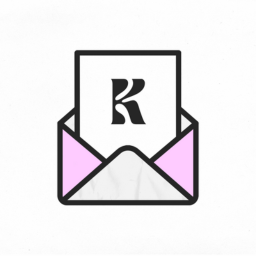U.S. Supreme Court hears TikTok case on potential ban
A potential ban could impact digital advertising and drive users to rival platforms

Get Smarter at Marketing
The U.S. Supreme Court on Friday heard arguments over a law requiring TikTok’s parent company, ByteDance, to sell the platform to a non-Chinese owner or face a U.S. ban.
TikTok’s lawyer, Noel Francisco, argued that the ban violates the First Amendment, calling it “a dangerous form of censorship.” Francisco said the law targets the platform’s ability to share and access ideas. “This case ultimately boils down to speech,” “What we’re talking about is ideas. “If the First Amendment means anything, it means the government cannot restrict speech,” he said.
Jeffrey Fisher, representing TikTok content creators argued the law violates the rights of creators. He claimed creators should be free to decide which publishers to work with.
Free speech vs. national security
The case centers on free speech and national security concerns. In April 2024, President Biden signed a law requiring TikTok to sell the app or face a potential ban in the U.S. by January 19.
The U.S. government claimed TikTok could allow the Chinese government to collect data and spread propaganda. While TikTok has denied the claims, the law to ban the app was upheld by a three-judge panel in the U.S. Court of Appeals in December. The Judges ruled that national security risks outweigh free speech concerns.
Following the Appeals Court ruling, TikTok requested the U.S. Supreme Court to pause a January 19 shutdown. It argued that the law would affect its U.S. users and advertisers if enforced. TikTok claimed it would lose 29% of its global advertising revenue if the app is shut down for a month. eMarketer already predicted that the ban is expected to disrupt digital advertising and push advertisers toward alternative platforms like Meta, Snapchat, and YouTube.
The Justice Department's argument
Solicitor General for the U.S. Justice Department, Elizabeth Prelogar, said the platform poses a “grave threat” to national security. Prelogar argued that TikTok’s ownership by ByteDance gives the Chinese government potential control over U.S. user data and influence over the app’s content.
Prelogar told the justices, “The Chinese government could weaponize TikTok at any time to harm the United States.” Chief Justice, John Roberts and Justice Brett Kavanaugh also questioned whether TikTok’s Chinese ownership jeopardizes Americans’ safety and privacy.
Justice Samuel Alito added, “There’s a good reason for saying that a foreign government, particularly an adversary, does not have free speech rights in the United States.” “The Chinese government could weaponize TikTok at any time to harm the United States,” Prelogar said. “There is no protected First Amendment right for a foreign adversary to exploit its control over a speech platform.”
Francisco responded that the U.S. Congress did not consider other measures. He argued that “They never even considered that most obvious alternative” of saying “You can’t give it to ByteDance, you can’t give it to China, you can’t give it to Google, you can’t give it to Amazon,” he said.
TikTok argues selling the app is unfeasible
Under the Protecting Americans from Foreign Adversary Controlled Applications Act, ByteDance must sell TikTok by January 19, 2025, or face a U.S. shutdown.
Francisco said if ByteDance fails to sell TikTok, the platform would shut down by January 19. “We go dark,” he said. Justice Amy Coney Barrett noted that “The law doesn’t say TikTok has to shut down. It says ByteDance has to divest. If ByteDance divested TikTok, we wouldn’t be here, right?”
Francisco said such a sale is unworkable, as China would likely block the transfer of TikTok’s proprietary algorithm. He also warned that the sale would fundamentally change the platform, making it impossible to replicate its global functionality and user experience.
“The platform shuts down unless there’s a divestiture unless President Trump exercises his authority to extend it,” Francisco said. “But, he can’t do that on January 19. On January 19, we still have President Biden. And on January 19, as I understand it, we shut down. It is possible that come January 20, 21, 22 we might be in a different world. Again, that’s one of the reasons why I think it makes perfect sense to issue a preliminary injunction here, and simply buy everybody a little breathing space.”
Francisco maintained that shutting down the app on January 19 is the likely outcome if the law stands. He highlighted the operational and technical challenges of creating a new U.S.-based TikTok.
Political and global implications
The case has also drawn political attention as the incoming administration of President-elect Donald Trump prepares to take office. Trump, who has over 14 million followers on TikTok, has reversed his previous stance on banning the app, with his legal team urging the Supreme Court to delay the law’s implementation.
The platform is already banned on government devices in several countries, including the U.S. and UK, and faces bans in countries like India.
What’s next for TikTok?
The Supreme Court is expected to decide within days. If the law is upheld, TikTok’s future in the U.S. remains uncertain, with ByteDance either forced to divest or risk the platform going offline.
%20(1).png)
in the world of marketing:
